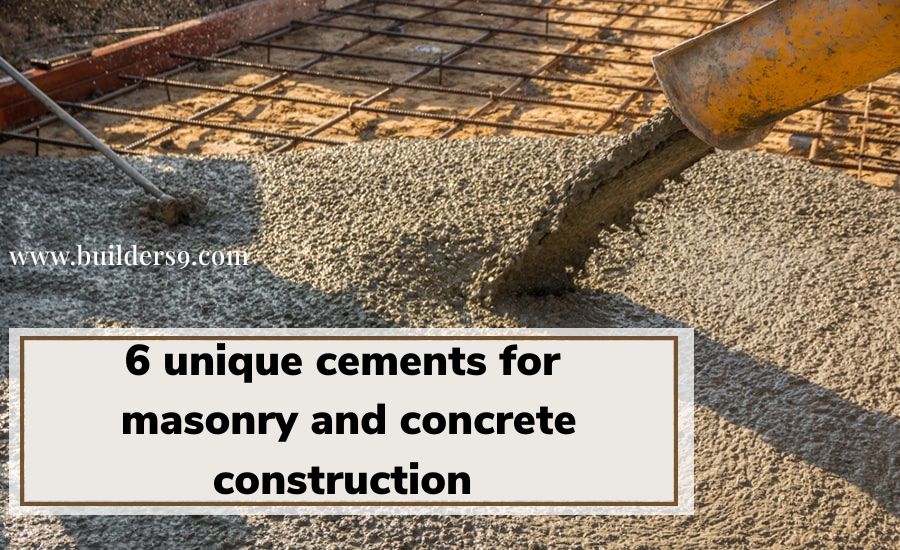Special cements are utilized for several specific purposes in concrete and masonry buildings. These purposes may include modifying the way concrete sets or hardens, creating various architectural aspects, improving workability, enhancing the water retention and plasticity of masonry, preventing water from penetrating walls or containment vessels, or lowering the cost of the cementing agent.
As a result, these unique cement varieties are used for particular needs. The concrete building industry currently has access to several specialty cements. Each type of special cement serves a certain purpose in terms of use, effectiveness, and durability.
These cement varieties are suitable for use in both very high and very low temperatures. One of these is specialized cement, which may be used in acids. Special cement, like silicate cement, sets up very quickly. Radiation-resistant cement is made of barium and strontium.
6 Unique Cements
1. Sorel Cement
Cement is made of magnesium oxychloride, also known as magnesia cement. It is used to bind grinding wheels, manufacture floor tiles and industrial flooring, and protect against fire. Since it resembles marble, it is also used for faux stones, faux ivory (for use in billiard balls, for example), and other similar things. Sorel cement has the benefit of a quicker rate of setting, which is advantageous in cold climates.
2. Oil Well Cement
During the drilling of oil wells, where they are exposed to high temperatures and pressures, oil-well cements are employed to cement the work. They typically include special organic retarders to stop the cement from setting too soon, together with Portland or pozzolanic cement.
These characteristics include hydraulic flow parameters, thickening time, compressive strength, slurry volume, and free water separation. The length of time required for the slurry to thicken to a consistency of 100 poises under various suitable temperature, depth, and pressure conditions is known as the thickening time.
3. Masonry Cement
Masonry cement is a specially formulated hydraulic cement that has been combined. As the name implies, it is designed specifically for use in the construction of masonry.
The limestone and air-entraining agent give masonry cement its fluidity and workability. Masonry cement adheres more firmly to bricks or other building components because it is simple to work with and has a water-retentive quality.
4. High Alumina Cement
Contrary to Portland cement, which is made up of calcium silicates, High Alumina Cement (HAC), sometimes called Calcium Aluminate Cement (CAC) or aluminous cement, is made up of calcium aluminates. Bauxite, limestone, or chalk are used in its production (special clay has extremely high alumina content).
Because of its heat resistance, even direct fire, it is advantageous for industries that work in hot environments. It is highly reactive and has high compressive strength. Because more heat is released during the setting process, it is also important to note that it has a low freezing point.
5. Expanding Cement
Portland cement, an expanding agent, and a stabilizer are the main ingredients of expansive cement. Expansive cement is typically used to reduce cracking in concrete slabs and pavement constructions caused by drying shrinkage and in unique situations, such as preventing water leaks. This cement can also be used for repairs, where the opening joint is filled before being expanded to create a tight junction.
6. Trief cement
The Trief process turns granulated blast-furnace slag into a cementitious slurry, which, when combined with the right amounts of sand, Portland cement, aggregate, etc., results in a long-lasting, corrosion-resistant concrete with a number of benefits.
Except for the blast furnace slag being processed wet and separately from cement, trief cement is essentially the same as blast furnace cement. Compared to OPC cement, this cement shrinks less and evolves at a lower temperature.
7. Water-repellent cement
The term “waterproof cement” refers to Portland cement with a water-repellent chemical added. Hydrophobic cement is produced by grinding Portland cement clinker with a film-forming material, such as oleic acid, to decrease the degradation rate. In contrast, the cement is held in unfavorable conditions.
Check the blog about the best cement brands in India for house construction.

